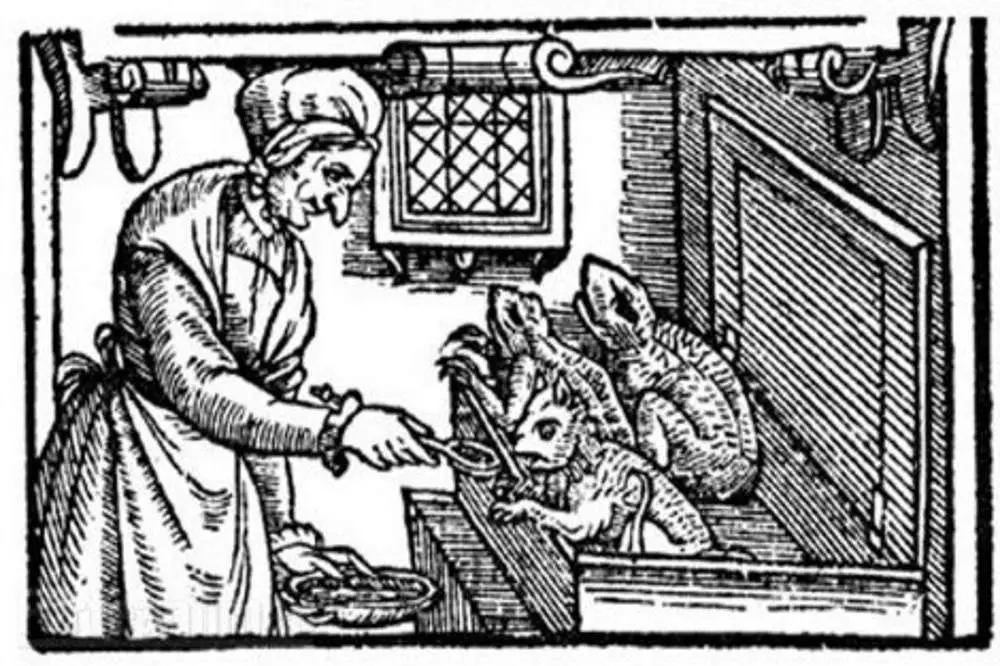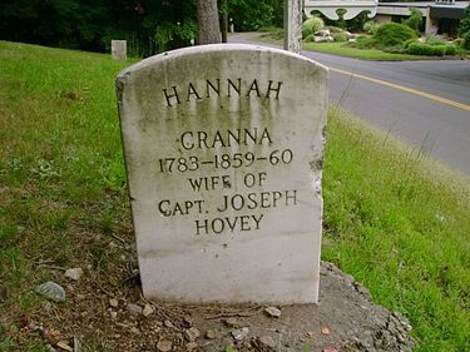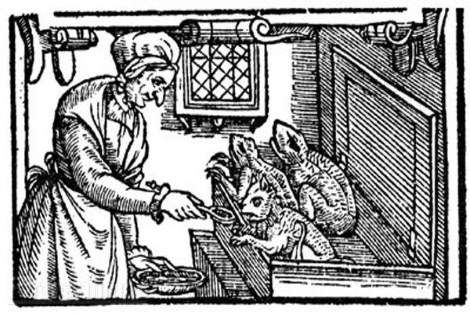Like most people accused of witchcraft, Hannah Cranna had a difficult temperament. Some might call her a shrew.
She demanded favors of her neighbors in Monroe, Conn., while giving little in return. When bad things happened to neighbors who refused her a favor, townspeople gossiped that Hannah Cranna had practiced her witchcraft on them.
So why wasn’t Hannah Cranna brought to trial for witchcraft?
Witchcraft Trials
Hannah Cranna lived when Puritans doubted that accused witches should be brought to trial. Historians credit the Salem witch trials – and the growth and spread of New England towns.
Immediately after the Salem witch trials of 1692-3, New Englanders viewed them as a shocking case of government run amok — and an embarrassment. After the 20 alleged witches were executed in Salem, Mass., no one was ever again indicted, convicted or executed for witchcraft in New England.
The Salem witch trials happened in part because of the Puritan practice of ‘mutual watch.’ The ideal city on a hill required vigilance by pastors and by laypeople to prevent one sinner from infecting the whole community. So parishioners kept an eye on the moral behavior of their neighbors.
Snooping on the neighbors was easy in early Puritan towns. They consisted of 150 people crowded into small houses around a common, and townspeople interacted with each other constantly.
But by the early 19th century, New Englanders multiplied and moved away from the town centers. The practice of mutual watch, possible in a town of 150, was impossible in a town of 1,000.
Monroe had over a thousand inhabitants during the lifetime of Hannah Cranna.
Hannah Cranna
Hannah was born in 1783 and married Capt. Joseph Hovey, probably much older than she. They had no children.
No whisperings of witchcraft followed her until her husband died suspiciously. He went out for a walk one night and fell over a cliff in an area he knew well.
The townspeople of Monroe thought Hannah had cast a spell that confused Joseph Hovey enough to wander into an abyss. From then on she carried the nickname Hannah Cranna.
She never remarried, but lived alone with her chickens on her property – supposedly guarded by snakes. She wore black widow’s weeds and got along well with some of her neighbors. With others, not so much.
Her husband’s death left her in poverty, and Hanna Cranna was not above using her reputation for witchcraft to extort food and firewood from her neighbors.
The Legends
Legends grew up around her witchcraft. A neighbor, renowned for her baking skills, made a number of pies. Hannah Cranna came by as they cooled and asked for one. The neighbor gave her the smallest. She asked for a larger pie, but the neighbor refused. Hannah Cranna then put a spell on her and the neighbor’s pies were never as good as they had been.
According to another tale, a young man trespassed on her property to fish for trout in her brook. She caught him, cursed him, and he never caught another fish.
In a third tale, two men driving an ox-cart full of hay stopped in front of her house to mock her. Hanna Cranna bewitched the oxen and the cart, the oxen stopped moving and the wheels fell off the cart.
One day in 1859, Hannah Cranna’s pet rooster Old Boreas died. Some suspected Old Boreas was her ‘familiar’ – an animal guide who helps witches with their magic.
Hannah Cranna told a neighbor she would die soon. She said she wanted her coffin carried to her grave by hand, not by cart. And, she said, she must not be buried before sundown.
She did die soon, and her neighbors ignored her instructions. They carried her over the snowy ground by sled until her coffin slid off. They tried again, and her coffin slid off again. Finally they gave up and carried her to her grave by hand. By then, the sun had set.
The funeral party returned to Hannah Cranna’s home, only to find it engulfed by flame. That pretty much sealed the legend of Hannah Cranna, Witch.
Today, Hanna Cranna lies beneath a gravestone in Gregory’s Four Corners Burial Ground on Spring Hill Road in Trumbull, Conn., right next to Monroe.
According to modern legend, a spectral figure sometimes appears in the graveyard and causes passing cars to crash.
This story about Hannah Cranna was updated in 2023.





5 comments
[…] her death, the people of Monroe tried to wheel her coffin down the hill but were unable — the coffin kept falling off — so they were forced to carry […]
[…] A New York Times reviewer liked it, howevert. He called it ‘a good story in the New England witchcraft tradition’ that included alchemy and […]
[…] her death, the people of Monroe tried to wheel her coffin down the hill but were unable — the coffin kept falling off — so they were forced to carry […]
[…] her death, the people of Monroe tried to wheel her coffin down the hill but were unable — the coffin kept falling off — so they were forced to carry […]
[…] her death, the people of Monroe tried to wheel her coffin down the hill but were unable — the coffin kept falling off — so they were forced to carry […]
Comments are closed.